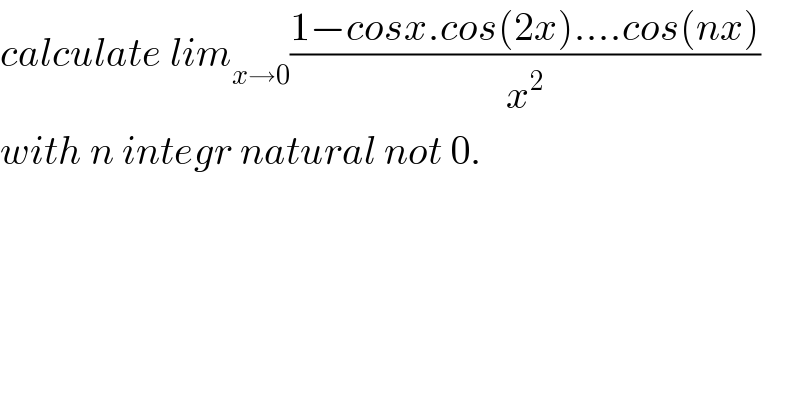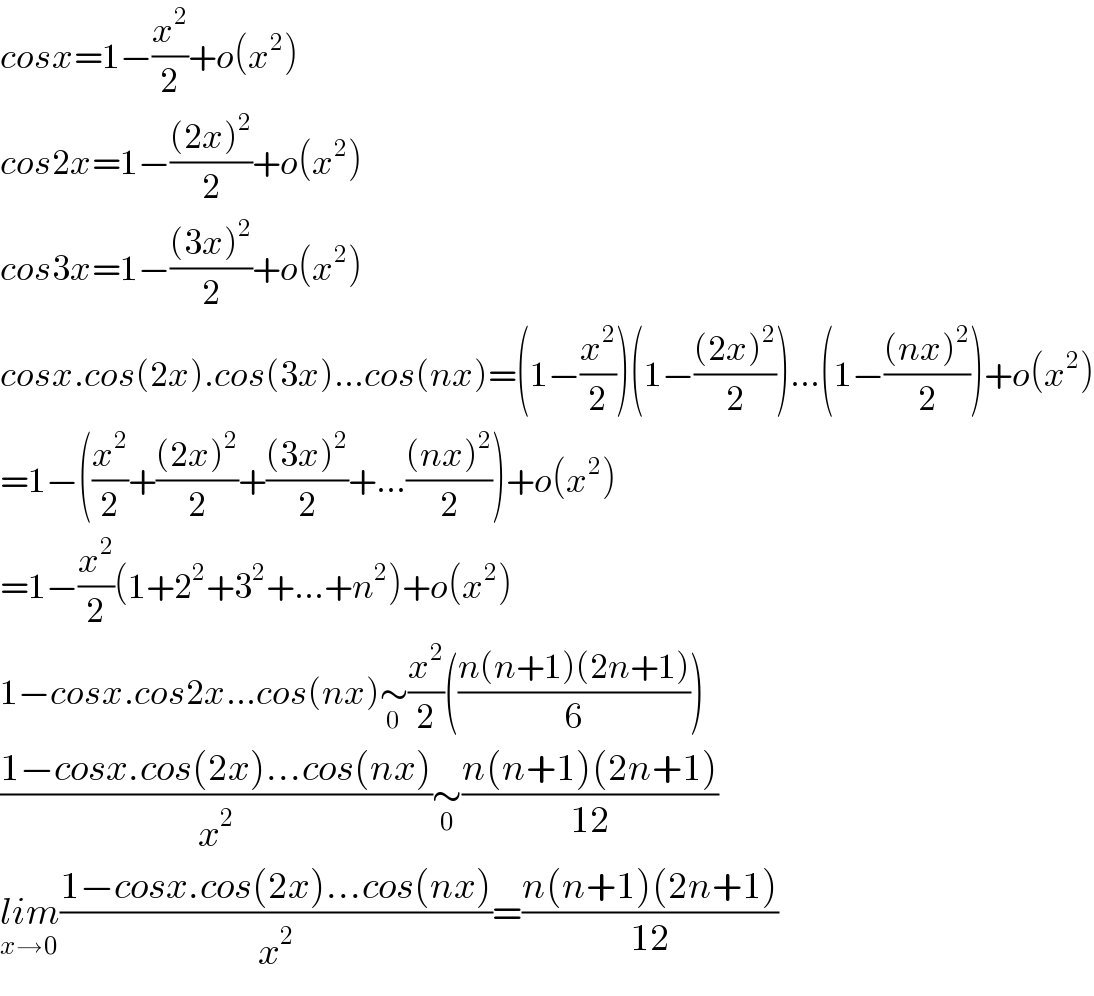
Question and Answers Forum
Question Number 57405 by Abdo msup. last updated on 03/Apr/19

Answered by Smail last updated on 05/Apr/19

| ||
Question and Answers Forum | ||
Question Number 57405 by Abdo msup. last updated on 03/Apr/19 | ||
 | ||
Answered by Smail last updated on 05/Apr/19 | ||
 | ||
| ||